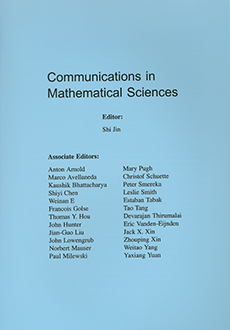Abstract
New linear response formulas for unperturbed chaotic (stochastic) complex dynamical systems with time periodic coefficients are developed here. Such time periodic systems arise naturally in climate change studies due to the seasonal cycle. These response formulas are developed through the mathematical interplay between statistical solutions for the time-periodic dynamical systems and the related skew-product system. This interplay is utilized to develop new systematic quasi-Gaussian and adjoint algorithms for calculating the climate response in such time-periodic systems. These new formulas are found in section 4. New linear response formulas are also developed here for general time-dependent statistical ensembles arising in ensemble prediction including the effects of deterministic model errors, initial ensembles, and model noise perturbations simultaneously. An information theoretic perspective is developed in calculating those model perturbations which yield the largest information deficit for the unperturbed system both for climate response and finite ensemble predictions.
Citation
Andrew Majda. Xiaoming Wang. "Linear response theory for statistical ensembles in complex systems with time-periodic forcing." Commun. Math. Sci. 8 (1) 145 - 172, March 2010.
Information





